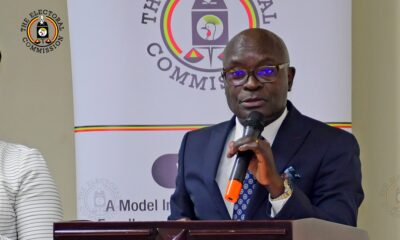Guest Writer
Political Parties’ Code of Conduct’ to mitigate indiscipline and electoral chaos

Muzafalu Ssentongo
All responsible institutions all over the world require a code of conduct to regulate their actions and way of behavior. Without it, misbehaviour may become a norm.
On the 17th of June 2020, the President of the Republic of Uganda, Mr. YoweriKagutaMuseveni assented to the Political Parties and Organisations (Amendment) ACT, 2020. In this amendment, the formulation of the political parties’ code of conduct was realized.
This Amended Act empowers the National Consultative Forum for Political Parties and organisations (NCF) to be the implementers of the political parties’ code of conduct.
The National Consultative Forum (NCF) is an umbrella organisation with representation from all registered political parties and organisations in the country.
The forum is established under article 71(2) of the 1995 constitution of the Republic of Uganda and it’s operationalized under section 20 of the Political Parties and Organisations Act (PPOA).
The forum is impartial in nature. It envisions being an inter- disciplinary platform for democracy and seeks to create harmony and peaceful co-existence through mediation, dialogue, capacity building and conflict resolution, among others, as a means of promoting and sustaining democracy in our country.
The forum offers a unique opportunity as the only Constitutional body that brings together all the registered political parties in the country onto a common platform; ensures political parties build necessary consensus on issues of common interest and offers a unique institutional mechanism to spearhead political reform processes in the country.
Composition of NCF;
The forum is composed of;
a. One representative from every registered political party or organisation, appointed by the party or organisation;
b. The chairperson of the electoral commission or his or her representative. he / she is an x – official member;
c. The attorney general or his or her representative as an x – official member;
d. The secretary of the electoral commission, who is the secretary to the forum.
Currently the number of registered political parties stands at 26.
Objective of code of conduct
The objective of this code is to prescribe a code of conduct for political parties and organisations for purposes of promoting—
(a) Tolerance, peaceful co-existence and democratic principles between and among different political parties, organisations and their members and supporters;
(b) Free and fair political campaigns and open public debates;
(c) Substantive contributions by parties to governance through periodic elections of office bearers, internal democracy and policy development;
(d) Fair and proper conduct of leaders and members of political parties and organisations; and
(e) Compliance by political parties and organisations, their members and supporters, with all the laws relating to elections.
Principles of code of conduct.
(1) The code of conduct is based on the following principles—
(a) the legitimacy of a government chosen through regular free and fair elections; and
(b) the creation of an enabling environment which ensures that citizens are informed of the policies and qualities of all political parties and candidates and to ensure that voters are able to make an informed choice.
Enforcement of the code
The main objective of NCF is to promote a well-functioning, strong and vibrant multiparty democracy by enforcing the code of conduct way before, during and after elections as provided for in the PPOA Act (amended 2020).
The road to credible political democracy has many different actors. Lessons from across other countries suggest that engagement with stakeholders can help to mitigate issues that are hindrance to fair democracy.
Comments

























